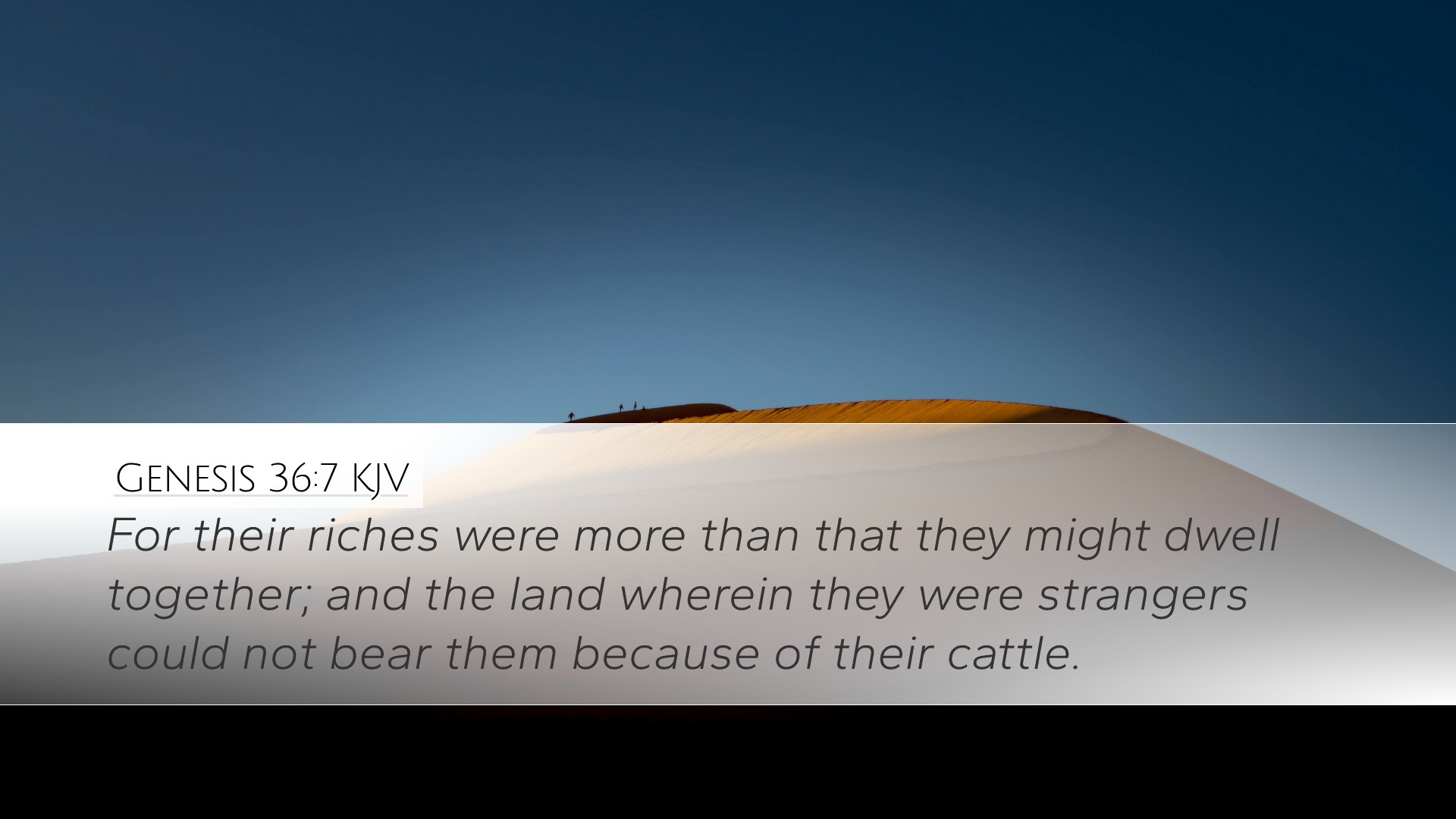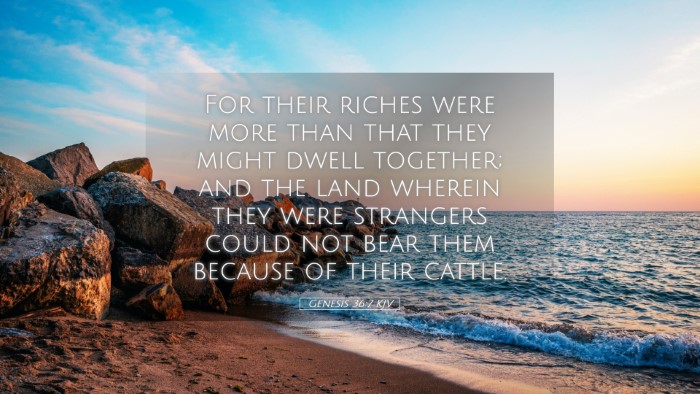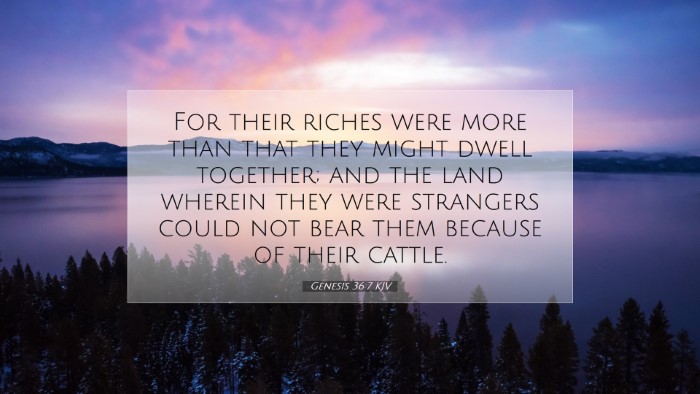Commentary on Genesis 36:7
Genesis 36:7 states: "For their wealth was more than that they might dwell together; and the land wherein they were strangers could not bear them because of their cattle." This verse encapsulates a significant moment in the ancestral narrative of the Israelites, particularly in the context of their relationship with Edom. Commentators have explored various dimensions of this text, offering insights that are meaningful for pastors, students, theologians, and Bible scholars alike.
Contextual Background
The passage falls within the genealogy and historical account of Esau, also known as Edom, who settled in the region of Seir. Understanding the geographical and socio-economic context is crucial. The land of Canaan, which would later become the Promised Land for the Israelites, was marked by scarcity at that time. This scarcity contrasts sharply with the burgeoning wealth of Esau's descendants.
Insights from Matthew Henry
Matthew Henry emphasizes the notion of prosperity leading to separation. He notes that the great riches accumulated by Esau's family necessitated their departure to avoid contention with Jacob's family. The wealth served as a double-edged sword—it facilitated their growth but also prompted a tension that led to separation. Henry reflects on how wealth can often strain relationships, drawing parallels to contemporary communities where material abundance can lead to fragmentation rather than unity.
Insights from Albert Barnes
Albert Barnes expands on the idea of the limits of shared land. He conveys that the land was insufficient to support both families due to the vastness of their flocks and herds. Barnes notes that this physical limitation symbolizes larger spiritual and relational issues. The passage reflects God's providence, as it teaches that He sometimes allows separation for specific divine purposes. The difficulty in sharing land serves to highlight God's arrangements in the lives of His people.
Insights from Adam Clarke
Adam Clarke focuses on the economic implications of Genesis 36:7. He interprets the text in light of the significant livestock wealth that Esau accumulated, which could be seen as a blessing from God's promise to Abraham and Isaac. Clarke suggests that the abundance was both a divine favor and a curse since it led to division. He points out that wealth doesn’t always equate to harmony and may indeed lead to conflict when people are not grounded in faith and humility.
Theological Reflections
The separation of Jacob and Esau's families invites theological reflection on themes of blessing, conflict, and divine purpose. The tensions arising from their wealth underline the reality that divine blessings can sometimes lead to conflict, which prompts deeper questions about how we handle riches and relationships within faith communities.
- Divine Providence: The narrative indicates how God orchestrates circumstances for the fulfillment of His purposes. While it appears that division is a negative outcome, it may serve the greater good in God's salvific plan.
- Human Relationships: The relational dynamics between families reflect ongoing themes that resonate within church settings today: the struggle between unity and division, particularly in matters of provision and resources.
- Wealth and Spirituality: The text cautions against the perils of wealth; prosperity can become a source of strife if not managed with wisdom and humility. The disparity in resources invites an inquiry into stewardship and the responsibilities that accompany wealth within Christian communities.
Practical Applications
As pastors and leaders draw lessons from Genesis 36:7, several practical applications emerge:
- Encouragement for Unity: Church leaders are encouraged to foster environments that promote peace and cooperation amid diversity of gifts and resources.
- Stewardship Education: Pastoral teachings may focus on the biblical perspective of wealth, emphasizing responsible stewardship that prioritizes relational harmony over material accumulation.
- Conflict Resolution: The narrative serves as a blueprint for addressing conflicts that arise from resource distribution—encouraging dialogue and reconciliation rooted in faith.
Conclusion
Genesis 36:7 serves not only as a historical account of Esau’s lineage and the challenges they faced but also as a timeless reminder of the complexities associated with wealth and community. By studying the insights from Matthew Henry, Albert Barnes, and Adam Clarke, we are beckoned to reflect on our own lives, our relationships, and the implications of our blessings. Ultimately, this scripture invites continual examination of how we can honor God in our dealings with wealth and each other.


